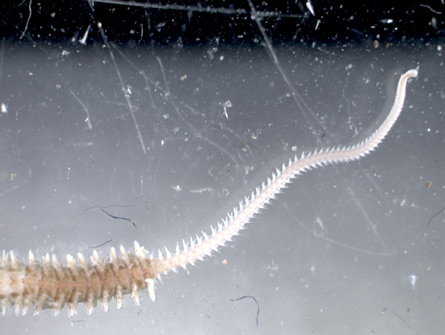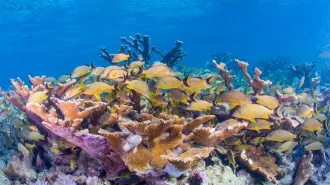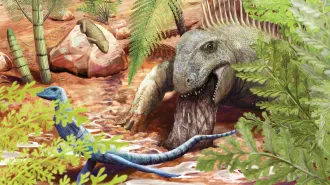Brittle stars may end up with less star power as greenhouse gases change ocean chemistry.

As human activity increases concentrations of carbon dioxide in the air, ocean chemistry is changing, says Hannah L. Wood of Plymouth Marine Laboratory in England. The pH of seawater, now around 8.1, is dipping closer to the acidic side, changing the supplies of various forms of carbon that sea creatures like corals and brittle stars need to form the hard parts of their bodies.
In a lab test, the pink brittle star Amphiura filiformis still managed to capture the carbon and calcium it needs to regenerate arms in lowered pH water, Wood says. “That’s against the trend” of earlier predictions, she says. Biologists had expected trouble for calcifying marine life as seawater pH declines.
“There’s a trade-off,” Wood says. The brittle star’s new arms grew with extra calcification but also had less muscle. In water adjusted to pH 7.7, which a gloomy scenario predicts for the oceans as soon as 2100, the brittle star arms had one-fifth to one-quarter of their usual brawn.
In the modified seawater, brittle stars nearly doubled their oxygen use. “It’s the equivalent of us breathing heavily,” Wood says.
“The main message is we need to look beyond calcification,” she says. The study will appear in an upcoming Proceedings of the Royal Society B.
“The most significant aspect here, I think, is that the increased calcification rates may come at a cost to other processes,” says Gretchen Hofmann of the University of California, Santa Barbara. “We need to look more deeply into an organism’s physiology to really get the whole picture.”







